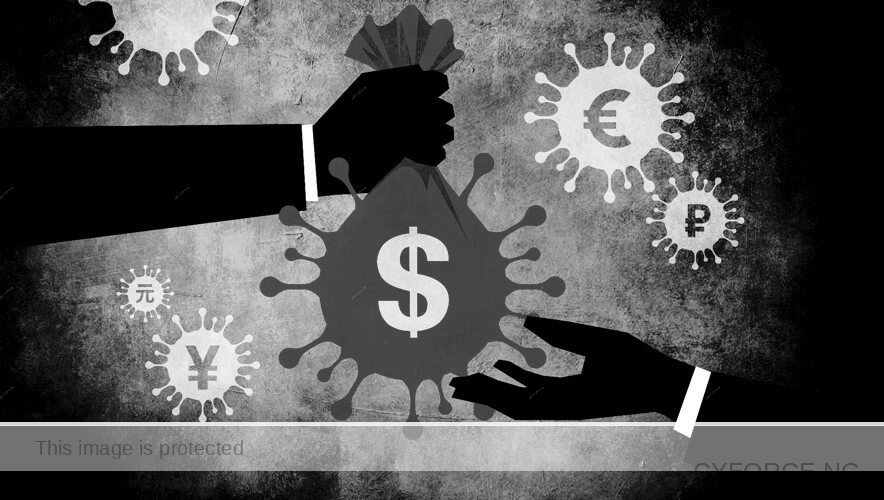Settings: Reports and Observations
Arthur:CTL
Bitcoin ‘Can’t Be Stopped’: Nigerians Look to P2P Exchanges After Crypto Ban
Last week, the Central Bank of Nigeria (CBN) ordered banks to close down accounts associated with cryptocurrencies. But this will not be enough to shut down Nigeria’s cryptocurrency market.
CBN clarified on Sunday that this is not a new order, but a reminder of a directive published in 2017. However, whether old or new, it’s having an impact. In response, banks quickly cut ties with cryptocurrency companies, such as the Binance exchange and social payments app Bundle, which in turn stopped accepting deposits.
- Nigeria has become a hot spot for cryptocurrency as an alternative to the naira, a national currency prone to depreciation. Nigerians have found various use cases for decentralized digital currencies, from trading bitcoin (BTC, -1.55%) to make a living to using it to dodge trade restrictions with China. During protests against police corruption in the country last October the Feminist Coalition was one activist non-profit accepting donations going toward the protests. When the group’s bank accounts were frozen and it couldn’t accept funds, it switched to bitcoin donations because the payment method could not be frozen.
Some Nigerian cryptocurrency users aren’t happy about the directive and have said they plan to continue using cryptocurrencies by using methods that are harder to detect and stop.
- Moving to ‘peer-to-peer’
Some users think they can get around them by not using centralized exchange
Bitcoin is peer-to-peer, meaning that it can be transacted without intermediaries. Your bank may be able to shut down your account but no one can shut down your bitcoin wallet. This development, while concerning, will not be the end of bitcoin in Nigeria,”
- But there’s an alternative: peer-to-peer transactions, where two users connect directly to each other to trade cryptocurrency. In return for bitcoin or other cryptocurrencies, a user might make a bank transfer directly to the other user, or pay that person with cash. Platforms such as Paxful and a Binance’s peer-to-peer platform help connect users to other users so they can coordinate these transactions.
- Crypto exchange Bundle made a similar comment in a statement to its customers about moving to “alternative channels” to ensure they can still buy and sell cryptocurrency. The email stated the exchange will provide more information about how this will work in the coming days. (Credit Coindesk)
A mistake? Yes CBN made a huge mistake!
- The CBN order for banks to close accounts associated with cryptocurrency is supposed to curb criminal activity and risky investments. In its clarification, it also listed several reasons why it considers cryptocurrencies dangerous and noted that other central banks and international financial institutions have warned against their use.
- “They have all made similar pronouncements based of the significant risks that transacting in cryptocurrencies portend – risk of loss of investments, money laundering, terrorism financing, illicit fund flows and criminal activities,” the letter reads.
- Sources in Nigeria disagree, arguing the regulations are a mistake.
“The fact that the CBN sent out this controversial memo to banks and other financial institutions without giving the industry participants and stakeholders an opportunity of dialogue shows how little they know about the Nigeria blockchain and cryptocurrency ecosystem,” Chuta said.
He argued that Nigerians should have a choice over what assets they invest in, especially because the value of the naira depreciates over time and users might want to use bitcoin as a hedge against this continuous inflation. He said many Nigerians are using crypto trading to put themselves through school, thousands of new businesses and jobs are being created by crypto innovation.
“The fact is that this directive was ill-advised, archaic, retrogressive, insensitive, and [smacks] of primitive superstition,” he added.
Some users are waiting to see if CBN issues any more rules or clarifications.
“Decentralized systems are hard to ban. But as for me, I’m waiting for more directives and then I can pick my positions,” crypto enthusiast Bayo Adebayo told CoinDesk, adding: “But putting a ban in the first place is very bad. I don’t like Nigeria. If it is to be banned totally, I will find a way to leave this Nigeria.”
Damage control / Analysis
- CBN could have Legislate, adopt and regulate all stakeholders to be involved! For proper and effective decision making
- CBN could have leis and partner with cryptocurrency companies such as blockchain, luno etc. and how to tackle criminal activities on the system
- CBN could have understand more about cryptocurrency world before embarking on the drastic decision which solve no problem but instead give criminals more alternatives
- Banning Cryptocurrency only renders our digital economy down, Nigeria is the number 2 investors in Cryptocurrency in which more than 2 million Nigerians survive on
- For now CBN and no body has the technical power to control digital currencies!



